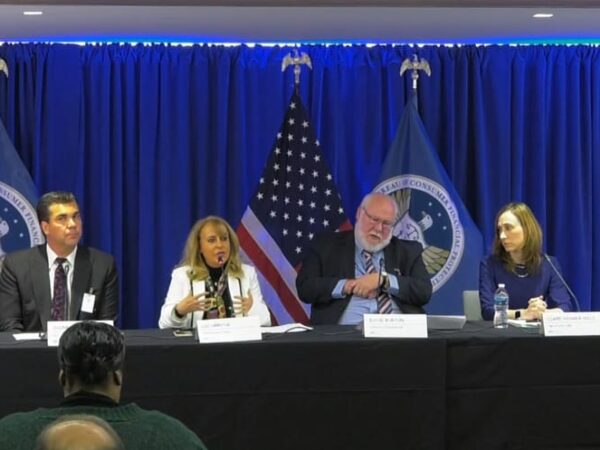The CRA Should Be Strengthened, Not Diluted
On May 20, 2020, the Office of the Comptroller of the Currency (OCC) announced its final rule on the agency’s regulations under the Community Reinvestment Act (CRA), just 40 days after the public comment period ended.

May, 21 2020 Update:
On May 20, 2020, the Office of the Comptroller of the Currency (OCC) announced its final rule on the agency’s regulations under the Community Reinvestment Act (CRA), just 40 days after the public comment period ended.
The Federal Reserve did not join the OCC and the Federal Deposit Insurance Corporation (FDIC) in the rulemaking process. Notably, the FDIC did not endorse the final OCC rule, creating an even more uncertain regulatory environment that was dependent on their assigned regulator, banks will be evaluated under one of three different CRA standards.
On May 21, 2020, only one day after the final CRA rule was released, Comptroller Joseph Otting announced his resignation, leaving with a weakened CRA that reduces investment in low- and moderate-income communities as his legacy.
An initial summary of the final rule from our colleagues at the National Community Reinvestment Coalition can be found here.
Accion Opportunity Fund submitted a letter in response to the Office of the Comptroller of the Currency (OCC) and the Federal Deposit Insurance Corporation’s (FDIC) proposed reforms to ‘modernize’ the Community Reinvestment Act (CRA). This is our official statement on their proposed changes to the CRA.
In addition, given the current COVID-19 pandemic, Accion Opportunity Fund expressed that it is crucial that we not distract banks with new regulatory changes at this time. They should be focusing on investing and engaging in activities that truly help LMI communities and the economy recover from this health and economic crisis.
The OCC and FDIC’s proposed reforms to the CRA threaten to weaken the historic civil rights law aimed at encouraging banks to invest in low-and-moderate-income (LMI) communities and small businesses.
The CRA was created to combat the negative effects of discrimination in lending, and while the problem of discrimination persists, the CRA has been remarkably effective. We believe the proposed reforms would significantly dilute the importance of CRA ratings and fail to ensure a sufficient flow of capital into underserved communities — especially communities of color, immigrant communities, and rural parts of the nation.
Accion Opportunity Fund has received $84 million in CRA-motivated investments from banks since 1994, which in turn has allowed us to originate nearly $500 million in small business loans to underserved, LMI entrepreneurs. This means that, through Accion Opportunity Fund alone, our CRA-funded lending activity has generated almost $1 billion in new, annual economic activity.
While Accion Opportunity Fund agrees the CRA needs modernization, any reforms must strengthen its congressionally-mandated purpose of supporting LMI communities, which is needed more than ever due to widening income inequality and the COVID-19 crisis. Our letter to the OCC and FDIC expressed the following concerns that negatively impact small businesses and community development financial institutions:
- Small businesses should be prioritized and not redefined
- Day-to-day bank operations should not be rewarded at the expense of LMI communities
- Overly simplistic metrics incentivize fewer, bigger development projects
- Banks can fail to serve LMI communities in most of their assessment areas and still get a passing CRA rating
- New deposit-based assessment area categories won’t bring resources to LMI communities
- Double credit for CDFI activities reduces investments while still rewarding banks
- CRA reform needs to be grounded in data and built on consensus
Additionally, Accion Opportunity Fund in collaboration with Small Business Majority submitted a letter to the OCC and FDIC from almost 200 small business owners stating that small businesses should be prioritized and not redefined.
Furthermore, Accion Opportunity Fund New Market Tax Credits (NMTC) partners, Coachella Valley Rescue Mission, Compass, Little Tokyo Service Center, Ravenswood Health Center, RYSE Youth Center, and the Santa Barbara Rescue Mission submitted individual letters expressing their concerns regarding how proposed reforms to CRA qualifying activities and performance standards would harm the NMTC program that they depend on to bring high-impact development projects to transform their communities.
To view all the comment letters submitted to the OCC and FDIC, you may visit the Federal Register page.








